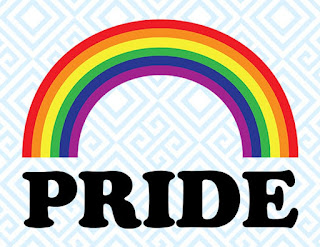I.
I'm sure there are reasons why November 9th might resonate within the British memory and cultural imagination; events that took place on this date include, for example, the birth of Edward VII (1841) and the murder of Mary Keller at the hands of Jack the Ripper (1888). The Welsh poet, Dylan Thomas, also died on this date, in 1953.
However, November 9th means far more for the Germans than it does for us Brits. For November 9th was the date of two fatally significant events in modern German history: the Beer Hall Putsch in 1923 and Kristallnacht in 1938 ...
II.
The Beer Hall Putsch was a failed coup d'état led by Nazi Party leader Adolf Hitler (in collaboration with the famous German general and War hero Erich Ludendorff).
Inspired by the Fascist March on Rome the year before, around 2000 Nazis marched on the Feldherrnhalle, in Munich city centre. Here they were confronted by an armed police cordon, which resulted in the deaths of sixteen Nazis, four police officers, and one bystander.
Hitler escaped and hid out in the countryside for a couple of days before being arrested and charged with treason. Although things had not gone to plan, the putsch brought Hitler to the attention of the entire German nation for the first time and generated front-page headlines in newspapers around the world.
His subsequent trial, which lasted for over three weeks, was also widely publicised and gave him an opportunity to promote his National Socialist ideology. Found guilty of treason, Hitler was sentenced to five years in Landsberg Prison (where he dictated his autobiography-cum-political manifesto, Mein Kampf).
After serving only nine months in jail, Hitler was released on Christmas Eve, 1924. Having learned from his mistaken attempt to seize power through revolutionary force, he immediately set about transforming the NSDAP from a paramilitary organisation into a modern political party that could garner popular support and secure him victory at the ballot box.
In 1933, the Nazi Party won 44 per cent of the vote, which gave them 288 seats in the Reichstag. Hitler, as Chancellor, passed the Enabling Act in March of this year, which gave him the plenary powers to make laws without the Reichstag's approval. This also allowed him to destroy all opposition to his rule and by the autumn of 1934 - following the death of President Hindenburg in August of that year - Hitler was now in complete control as Führer of the German Reich.
In 1939, Hitler declared that November 9th would henceforth be an official public holiday, on which to commemorate the martyrs of the Nazi movement who were killed during the Munich Putsch.
III.
There is, of course, another reason to remember this date: Kristallnacht - or the Night of Broken Glass - a planned and coordinated pogrom against the German Jews carried out by members of the Nazi Party's paramilitary forces (the SA and SS), in 1938.
Shamefully, a number of German citizens also actively participated in the orgy of violence and destruction, although most, like members of the civil authorities, simply stood by looking on (some with horror some with glee) as Jewish stores, houses, schools, and synagogues were ransacked and smashed. Even Jewish graves were violated.
In all, 267 synagogues were destroyed throughout Greater Germany; over 7,000 Jewish businesses were damaged, and 30,000 Jewish men were arrested and incarcerated in
concentration camps. Estimates of fatalities caused by the attacks have varied. Early reports claimed that 91 Jews had been murdered, but more recent analysis of German sources puts the figure much higher and when deaths from
post-arrest maltreatment and subsequent suicides are included, the death
toll reaches well into the hundreds.
The world was shocked at this widely reported event; The Times declared - rightly - that it had disgraced the entire German nation. The Daily Telegraph correspondent spoke of a nauseating mix of racism and hysteria. But no one really did anything other than voice their outrage at what was, we now know, a prelude to or foreshadowing of the Final Solution and the murder of six million Jews during the Holocaust.
IV.
When people today wonder why they should be concerned with the surge in
antisemitism and anti-Israeli hate speech following the events of October 7th and the subsequent war in Gaza, this is why.
To be perfectly honest, as much as one may feel sympathy for the Palestinians, I really don't want to hear calls for Jihad and/or intifada on the streets of London; nor chants of from the river to the sea.
And nor, come to that, do I think it anything other than outrageous that the Anne Frank day care center for pre-school children in the small German town of Tangerhütte - which has operated under that name since the 1970s - may be renamed after a number of migrant parents complained.
Apparently, these parents find the name (and story of) Anne Frank problematic - presumably in much the same way that posters featuring the faces of Jewish children kidnapped and held hostage by Hamas are said to be problematic and provocative.
For officials, including the mayor, in Tangerhütte to agree to this act of historical erasure is profoundly depressing. Didn't Germany promise to never forget what had happened in the twentieth-century and never allow such things to happen again ...?
Predictably, however, they justify the name change on the (woke) grounds that it is important to celebrate the diversity of the children attending and not oblige them (or their parents) to have to deal with complex political issues arising from a past about which they know nothing and care even less.
If these officials get their way - although following a huge backlash this now seems very unlikely - Kita Anne Frank will soon become known as the World Explorer [Weltendecker] day care centre; a name that is as vacuous as the people who came up with it.





